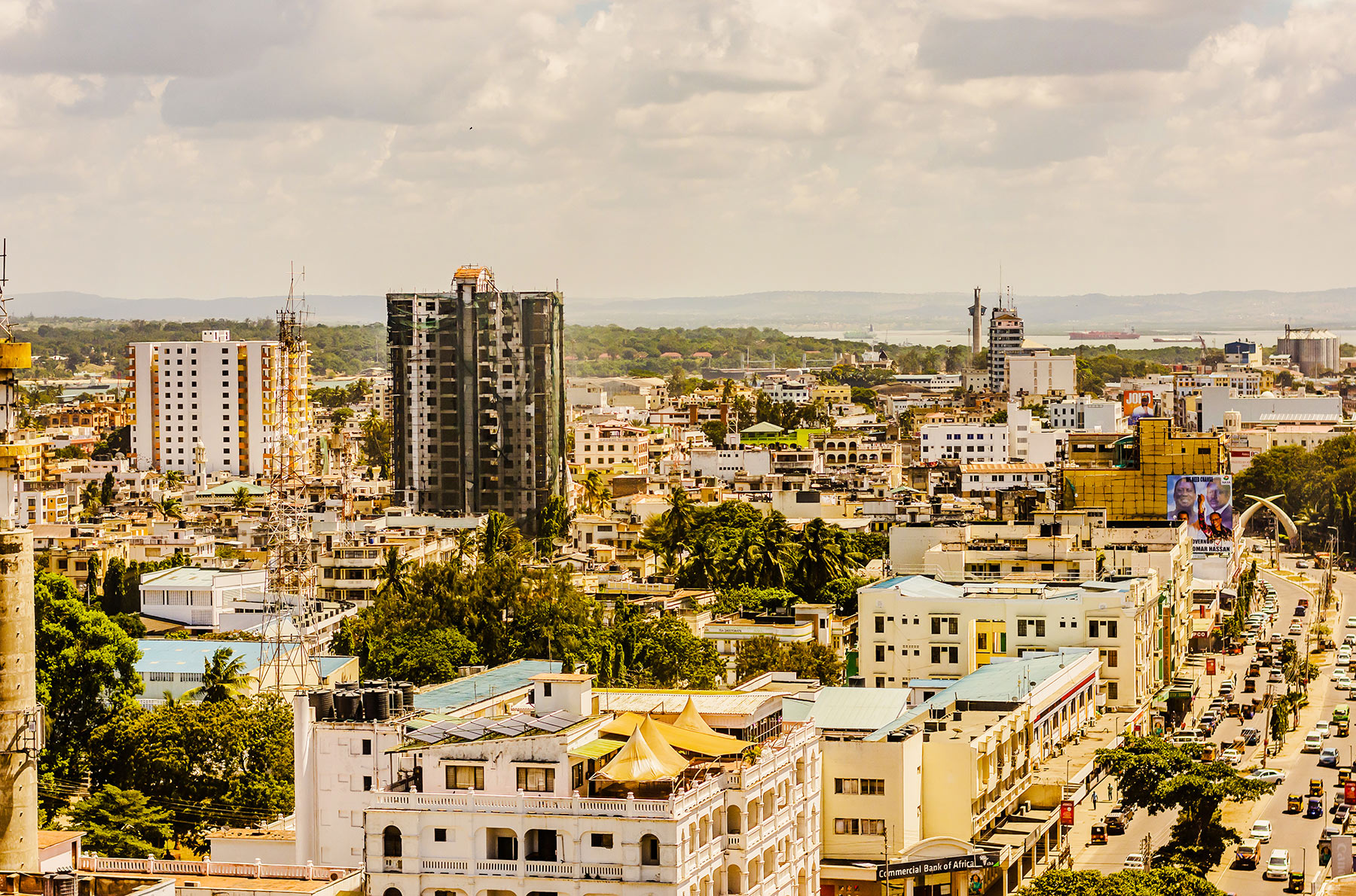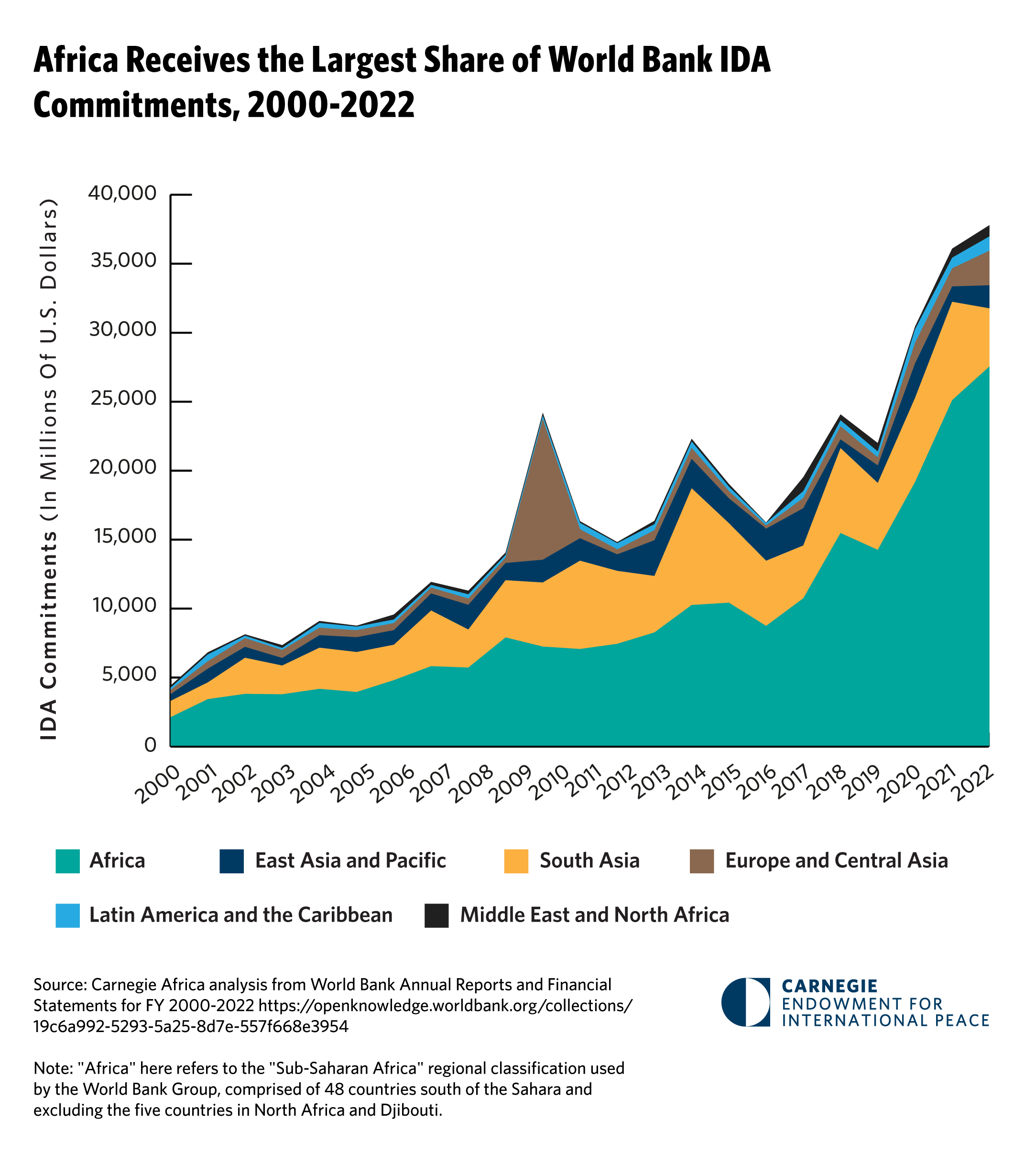
Africa at the World Bank
On the sidelines of the Spring Meetings, the Carnegie Africa Program hosted policymakers, members of the private sector, and representatives of pan-African organizations for a private high-level roundtable to discuss an African agenda for reform of the World Bank Group.
APRIL 2023
Hello friends,
As we enter the spring season, the World Bank and the International Monetary Fund are holding their Spring Meetings. In a new World Economic Outlook report released during the meetings, the IMF forecasts a global growth rate of 2.8% in 2023. But Africa is expected to grow by 3.6%, lower than “emerging and developing” Asia (India 5.9%, China 5.2%) but higher than the global average (Europe 0.8%, the U.S. 1.6%, and Latin America 1.6%).
On the sidelines of the Spring Meetings, the Carnegie Africa Program hosted policymakers, members of the private sector, and representatives of pan-African organizations for a private high-level roundtable to discuss an African agenda for reform of the World Bank Group. This discussion is just the beginning of a series of initiatives at the Carnegie Africa Program to examine ways that the African continent can navigate the rapidly changing system of global economic governance.
How the African continent positions itself will shape the future of some multilateral organizations. Indeed, as we show in our Chart of the Month, Africa is a central component of the portfolio of the World Bank’s concessional arm, the International Development Association (IDA). For close to two decades, the bulk of the World Bank financial commitments have been increasingly concentrated in Africa. For instance, in FY2022, 83% ($27.5 billion) of IDA was committed across 48 countries in Africa. With that being said, as a major borrower, the African continent—whose approach to achieving development outcomes has been shaped for decades by World Bank policies—should in turn be able to weigh in on the organization’s direction as the momentum for reform picks up steam. Read more in the short analysis on this topic.
On the Bretton Woods institutions, I recently wrote an article in Foreign Policy arguing that since the World Bank’s capital base is unlikely to grow in the near future, the success of its new president (likely to be Ajay Banga) depends on being able to DO MORE with LESS.
On a slightly different note, WATHI CEO and Africa Program scholar Gilles Yabi published an article outlining the principles for an effective U.S. approach to mitigate conflict in fragile and conflict-affected states in Africa. Yabi calls on the United States and other major powers to rethink their security strategies, whose outcomes historically had unintended consequences for countries on the brink of fragility. As always, sign up on our website to stay up to date on the program's events and publications.
And to those celebrating, Happy Easter, Chag Sameach, and Ramadan Mubarak!
Sincerely,
Zainab Usman
Director, Carnegie Africa Program
CHART OF THE MONTH

FEATURES
The organization’s next president will have to tackle a growing range of issues with a shrinking capital base. Zainab Usman
Since the International Development Association is an important component of the World Bank and Africa is the major recipient of IDA commitments, the region is crucial to the bank’s overall balance sheet. Zainab Usman
Following a checkered history of security engagement in Africa, the United States is rolling out a new conflict mitigation strategy on the continent—but African governments must also play an essential role. Gilles Yabi
Watch a special conversation with leading experts on the changing relationship between African nations and the U.S. and China. How can Africa’s development priorities around industrialization, job creation, and universal electrification remain salient in an era of great power competition?
DEVELOPMENTS ON OUR RADAR
- China Is Now the Major Lender of Last Resort for Developing Countries. [The Africa Report]
- Vice President Harris Launches Global Initiatives on the Economic Empowerment of Women, Totaling over $1 Billion. [The White House]
- Getting Currency Swaps Right: How China is Filling the Void Left by the West. [China Global South Project]
- Almost 2 Years After Launch, Who Is Using eNaira? [Nairametrics]
- Africa's Phone Shipments Up 41.6%, Samsung Outing Transsion [The East African]
Carnegie does not take institutional positions on public policy issues; the views represented herein are those of the author(s) and do not necessarily reflect the views of Carnegie, its staff, or its trustees.